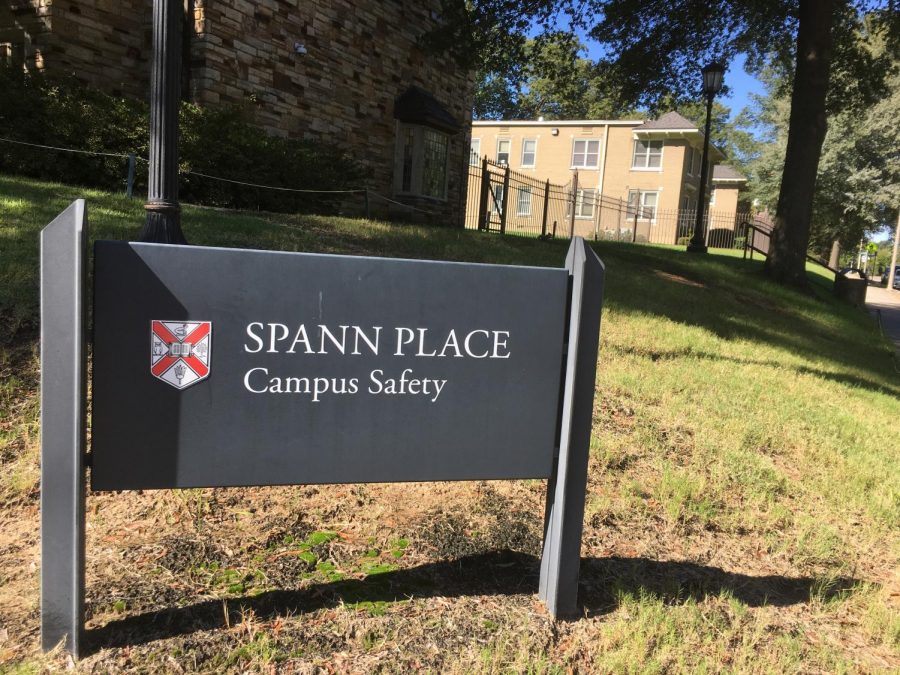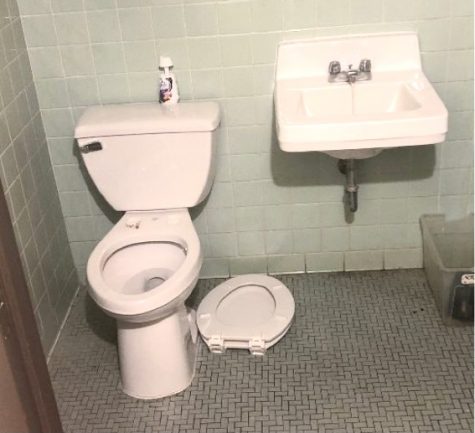Why I filed a Clery Act complaint against Rhodes College, and why I do not regret it
October 26, 2019
“We are proud of the low crime rate and extraordinarily safe campus at Rhodes College.”
This proclamation appears in bold lettering at the top of the Rhodes Campus Safety website. I used to wonder if it would be more convincing without the added emphasis.
I visited the Rhodes College campus for the first time in the summer of 2016. When someone in my tour group mentioned Hogwarts I laughed, even though I never have and never will see a Harry Potter movie. I even laughed when I heard someone refer to the cafeteria as the Rat for the first time.
My tour guide told us about how seriously students take the honor code and live by it every day. “Students do not think twice about leaving a laptop in the library while leaving to grab lunch,” he said. “We trust and honor each other.”
My dad laughed at the mere suggestion. I thought it was kind of cool, almost idealistic.
A couple months into my freshman year I reported to the school that a male student was stalking me. He was following me to parties. He was following me towards my dorm. Sometimes he’d beat me to it and I would find him inside my dorm building, waiting. I got a ‘no contact order’ against him and his fob was blocked from working in my dorm building.
It affected me more than I’d like to admit, but I ended up sharing my experience with another girl who said that she had recently gone through the same thing with her boyfriend. We became good friends after that.
Over the next few years I gradually became more interested in how Rhodes reports crime. I remember a string of burglaries happening in 2017. My friends told me about how someone, somehow, got access to their dorm buildings and was able to steal things from individual dorms. Sep. that same year I remember looking outside my Bellingrath window every day for a week, trying to see if my car was still there. In just that month alone we had 11 thefts/burglaries, 14 auto burglaries, and one motor vehicle theft.
Sexual assault and rape were, and still are, a perpetual of cause of worry and concern on campus. This is why the 2018-2019 Rhodes College Annual & Fire Safety report gave me pause. Rhodes had never made it seem like it was important to look at these huge reports, but I was trying to write an article about crime trends over the years, and the annual report had just been published early October.
In 2014 Rhodes reported 17 forcible sex offenses, which include forcible fondling and rape as defined by the Clery Act. 22 were reported in 2015 and 19 the year after. 2017 saw just three reported rapes and one forcible fondling.
Such a sharp decrease made me skeptical of its accuracy.
I went back to the crime logs to see if I could corroborate the numbers; however, I did not have access to all of them. I did catch one thing. Director of Campus Safety Ike Sloas sent the campus an email on April 4, 2017. He informed us that two separate incidents had been reported on campus. One sexual assault, one forcible fondling. However, the sexual assault wasn’t in the archived crime log. Another concerning feature of the log was its use of vague nonspecific language. Over the last few years, Rhodes has had a couple dozen reports of ‘battery’ according the crime log. Some of the cases were going to Title IX, some went to student conduct and some of the reports left that category left blank.
Based on the little information the log provides, burglary and theft do not seem to have any distinction. It’s clear that Rhodes has a theft problem, but only burglaries are reported in the annual statistics. I immediately asked Sloas if he could release any crime reports that could clarify my suspicion (redactions would be welcomed). I even pointed out the fact that the annual reports were listing Tennessee state statues, rather than the specific federal ones mandated by the Clery Act. He told me no. Tiffany Cox at the Title IX office told me the same thing but said a new Title IX annual report would be released by August.
The report was never released.
I was optimistic about all the potential changes that would be made to Rhodes’ new annual report, released on Oct. 1. I was somewhat satisfied. Approximately 25 pages of required policies and procedures were added, compared to the last 10 annual reports. However, I was disappointed with Rhodes’ careless attempt to notify the community about how significant these changes are. A brief mention of a corrected ‘discrepancy’ at the bottom of an email is unacceptable.
On Sep. 11, I emailed Ike Sloas asking him to give me the last three years of crime logs. The archive used to be on the crime log website. The archive was removed a week before the new report came out.
Despite my continuous attempts to contact Sloas, 28 days had passed with no response. I decided to forward it all on to President Hass. Afterall, the Clery Act requires Rhodes turn over requested logs within two business days.
The next day, I was contacted by Interim Vice President for Student Life Darrell Ray.
“President Hass has asked that I respond to your email, as she is in the midst of the Board of Trustees meeting. As you know, the Clery Act does not require Rhodes to post the crime log on its website, but we have undertaken to do this as a convenience and courtesy to the Rhodes community. Right now, the website is undergoing reconstruction so that it will be easier to use and to minimize transcription errors. The crime log will be returned to the website when Rhodes is satisfied with it. In the meantime, you are welcome to come by the Campus Safety Office this afternoon, where you will be given a pdf of the current log for the last three years,” Ray said via email.
“Finally, how incidents are described in the logs and when they are listed is decided by the College in its sole judgment based on facts outside your knowledge or need to know. Rhodes is not in a position to discuss these decisions with you without violating other obligations imposed on Rhodes by federal law.”
“On the other hand, if you have personal knowledge of what you believe to be an omission or error in the logs, please bring it to our attention as soon as possible,“ Ray wrote.
I received the logs in a flash-drive. My laptop doesn’t work with flash–drives, so I waited until my roommate got home.
The following are crimes that Rhodes has omitted until now, according to the archives I downloaded in May.
The new log shows in 2016 that 12 crimes have been added. Eight reports fall under sexual assault and dating violence. The dating violence/stalking crime my freshman friend reported is now there. Mine is not. I went back through my emails and found the ones of me going back and forth with the person I reported him too. The new log doesn’t have my report in the surrounding days or even month I reported it.
In 2017 and 2018, Rhodes omitted many crimes from the archived log, including multiple stalking, sexual assaults, dating violence, and at least 15 other crimes.
In 1990 The Clery Act made it mandatory for schools to accurately report student crime data and properly warn students of potential threats. It is the foremost consumer protection law, as it is based on the premise that students, employees, and other members in the community are entitled to reliable and complete campus safety and crime prevention information. The transparent communication of this information empowers everyone on campus to be well-informed and to play an active role in their own safety and security. Any failure to produce an accurate and completed report deprives the campus of vital safety information to which they are entitled and effectively negates the law’s intent.
Whether this is blatant indifference to the risks of noncompliance, or a pernicious scheme to protect their reputation is not as clear—but the silence is unacceptable.















